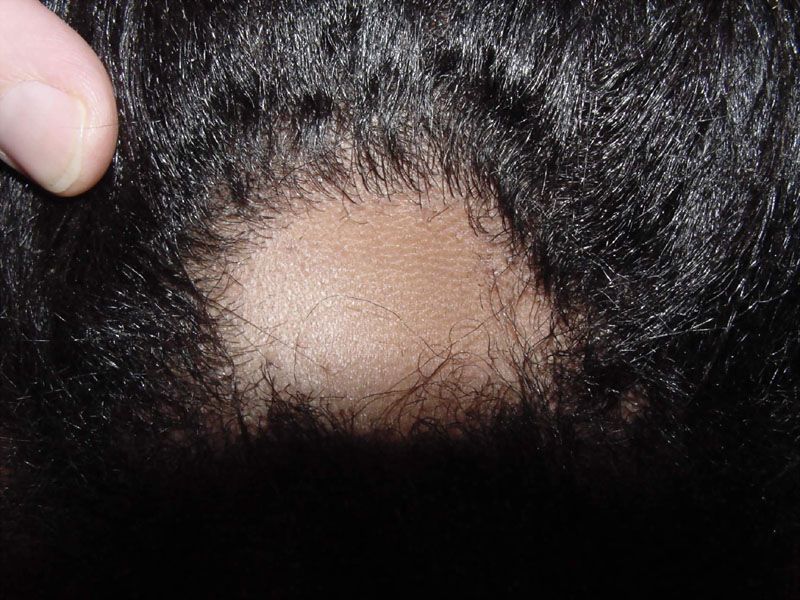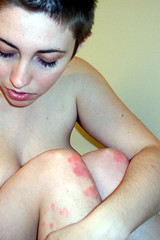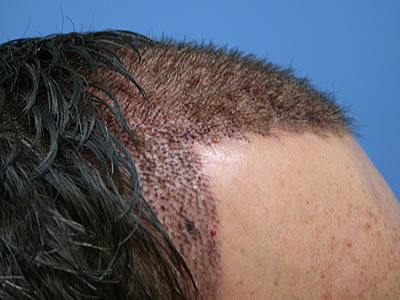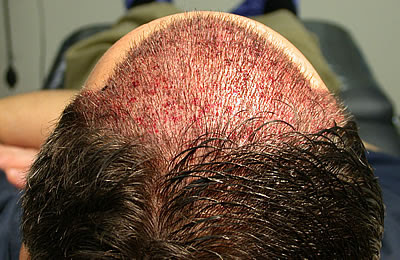MENOPAUSE SYMPTOMS – ESTROGEN Women LIBIDO LOVE-DHEA – Natural Products SOLUTION
MENOPAUSE
Many women seek to alleviate the symptoms of menopause. If hormone replacement therapy remains a common and effective treatment, more and more women are resorting to natural health products. However, as is the case for all health products, caution is required because of side effects sometimes occur.
The term menopause means etymologically « stop rules ». It is a natural process that does not occur suddenly. Considering that menopause has occurred in the absence of menstruation for a year. It is preceded by a period called pre-menopause. This period is shorter or longer. During this phase, the menstrual cycle is unstable heavy periods too long or too short. Other known symptoms of « premenstrual syndrome, congestive » are experienced bloating, mood swings, swollen and painful breasts, insomnia, vaginal dryness, hot flashes, etc.. Most women begin menopause late forties or early fifties, but it is quite normal that it occurs between 40 and 60.
Considering that menopause has occurred when a woman has not had a menstrual period for over a year and in the absence of any other problem or condition. The average life expectancy of Canadian women is approximately 81.5 years. The period after menopause now occupies over a third of the lives of women, more than thirty years.
Menopause is defined as the period during which the ovaries secrete increasing amounts of low and inconsistent for two or reproductive hormones estrogen and progesterone. These hormones are potent regulators of brain function and emotional body and many women feel that this is particularly true during the premenstrual days.
Diseases associated with menopause:
Osteoporosis. At menopause, bone loss accelerates normal for a few years before returning to normal. Therefore, after menopause, women have a lower bone density than men Cardiovascular disorders.
The risk of cardiovascular disease increases after menopause. You are more at risk if you have a family history of cardiovascular disease, if you have a history of high cholesterol, hypertension or diabetes.
There are other risk factors including smoking, early menopause and lack of exercise.After menopause, the risk level of women suffer from cardiovascular problems increased and reached that of men. In addition, taking hormone replacement increases the risk of cardiovascular
Urinary incontinence. After menopause, declining estrogen may cause atrophy of the muscles of the perineum. Drops of urine can escape when a force is well supplied, when we laugh, cough or during sex
Endometrial cancer and breast cancer. After the cessation of menstruation, there is an excess of estrogen in the body of the woman (stored mainly in adipose tissue), endometrial cells, can develop and accumulate, transforming itself with thetime, cancer cells. The risk of breast cancer is also increased.
Factors influencing the intensity of menopausal symptoms:
Cultural factors. Western women are more at risk than women of other origins have more pronounced symptoms. The severity of symptoms depends on many conditions in which menopause occurs. In North America, nearly 80% of women have symptoms of menopause, especially hot flashes. But in Asia, they are only 20%.
This is largely explained by the diet. Indeed, an abundant consumption of soy products, a food that has a high content of phytoestrogens prevent the « de swaying » important and reduces the impact of hormonal imbalance and its symptoms. However, it is noted that genetic factors are involved, as demonstrated by studies of immigrant populations.
Psychological factors. Menopause occurs at a time of life often carries other changes: children leaving home, leaving the spouse with a younger, early retirement, etc.. Recognition of seniors as wise people often reduce the unpleasant symptoms of menopause … This leaves he heard that part of stress and psychological factors may be involved in the phenomenon? The attitude of mind deal with these changes will influence the intensity of symptoms.
Other factors. Lack of exercise and physical inactivity related to the severity of the symptoms of menopause.
The age at which menopause occurs is partly hereditary.
One hundred years ago, the average age of first menstruation was 16. Now it’s 12 years. Women became pregnant much younger, had more pregnancies, more and longer breastfeeding and had only 100 to 200 menstruating before menopause.
One hundred years later, women have fewer children, breastfeeding less time and less often and experiment from 300 to 400 periods during their working lives. Their hormonal system is idle, resulting in infertility, PMS, cancer, fibroids, menopause and migraine pain.
Estrogen and progesterone have somewhat opposite effects that allow them to remain in balance. If the level of progesterone decreases estrogen dominate causing a multitude of discomforts and ailments.
Diseases Associated with Menopause:
Osteoporosis:
At menopause, bone loss accelerates normal for a few years before returning to normal. Therefore, after menopause, women have a lower bone density than menCardiovascular disorders. The risk of cardiovascular disease increases after menopause. You are more at risk if you have a family history of cardiovascular disease, if you have a history of high cholesterol, hypertension or diabetes.
There are other risk factors including smoking, early menopause and lack of exercise.After menopause, the risk level of women suffer from cardiovascular problems increased and reached that of men. In addition, taking hormone replacement increases the risk of cardiovascularUrinary incontinence. After menopause, declining estrogen may cause atrophy of the muscles of the perineum. Drops of urine can escape when a force is well supplied, when we laugh, cough or during sexEndometrial cancer and breast cancer. After the cessation of menstruation, there is an excess of estrogen in the body of the woman (stored mainly in adipose tissue), endometrial cells, can develop and accumulate, transforming itself with thetime, cancer cells.
The risk of breast cancer is also increased.Factors influencing the intensity of menopausal symptoms:
Cultural factors. Western women are more at risk than women of other origins have more pronounced symptoms.
The severity of symptoms depends on many conditions in which menopause occurs. In North America, nearly 80% of women have symptoms of menopause, especially hot flashes. But in Asia, they are only 20%.This is largely explained by the diet. Indeed, an abundant consumption of soy products, a food that has a high content of phytoestrogens prevent the « de swaying » important and reduces the impact of hormonal imbalance and its symptoms.
However, it is noted that genetic factors are involved, as demonstrated by studies of immigrant populations.
Psychological Factors.
Menopause occurs at a time of life often carries other changes: children leaving home, leaving the spouse with a younger, early retirement, etc.. Recognition of seniors as wise people often reduce the unpleasant symptoms of menopause …
This leaves he heard that part of stress and psychological factors may be involved in the phenomenon? The attitude of mind deal with these changes will influence the intensity of symptoms.
Other factors. Lack of exercise and physical inactivity related to the severity of the symptoms of menopause.The age at which menopause occurs is partly hereditary. One hundred years ago, the average age of first menstruation was 16. Now it’s 12 years.
Women became pregnant much younger, had more pregnancies, more and longer breastfeeding and had only 100 to 200 menstruating before menopause. One hundred years later, women have fewer children, breastfeeding less time and less often and experiment from 300 to 400 periods during their working lives.
Their hormonal system is idle, resulting in infertility, PMS, cancer, fibroids, menopause and migraine pain.
Estrogen and progesterone have somewhat opposite effects that allow them to remain in balance. If the level of progesterone decreases estrogen dominate causing a multitude of discomforts and ailments.
- SYMPTOM
- During menopause, some women just stop having periods. Others will experience symptoms for several years if no measures are taken to relieve symptoms.Change in the menstrual cycle. This is one of the first signs of menopause. This included an irregular menstrual periods, they may for example be closer together.Bleeding may also be more or less heavily than usual
- Hot flashes. This is the most common symptom of menopause. They can be somewhat unpleasant, but can also become a major enough to affect the quality of sleep and daily life. Between 50 and 80% of menopausal women suffer to varying degrees. They usually last a few seconds up to an hour. More than a dozen episodes per day are often observed.
- However, they are more frequent at night. They can occur for at least a year but rarely exceed five years for most women. Hot flashes are typically experienced so sudden, first in the abdomen or chest, and within seconds they rise to the head.The skin may become red and sweating become abundant, the breath is often accompanied by digestive problems and dizziness. Headache and palpitations, followed by chills may accompany
- Tendency to insomnia. Insomnia related to menopause result of hot flashes at night that awaken menopausal women. Hot flashes and night disturbing sleep and weaken the body, sometimes dramatically. In such cases, post-menopausal women is fast becoming tired, irritable, depressed and prone to many ailments while all weaknesses are emerging
- Problems with urinary tract infections. You will be more vulnerable to bladder infections after menopause.
- Sometimes you can present without symptoms of infection, that is to say, feel the need to urinate often, feeling an urgent need to urinate, experience a burning sensation when urinating, be unable to to urinate or get up frequently at night to urinate.
- Thinning of the vagina and vulva. Menopause causes thinning of the vaginal wall and the region of the vulva. The vagina loses its ability to produce lubrication during sexual arousal
- Dry mucous membranes. Dryness of mucous vaginal and bladder tends to occur when it’s been over five years that menstruation has ceased. It takes a daily discomfort with itching, dryness, burning, which favors the occurrence of repeated vaginal infections. Besides all this makes sex painful and painful

Weight gain. Usually it is entre2 and 10 kg.
- Fat cells convert hormones of the adrenal glands in female hormones. A slight weight gain, because it reduces the hormonal decline at menopause, is beneficial to health
- Cognitive impairment. Disorders of memory or concentration, associated with menopause can be caused by insomnia
- Decreased libido. Sexual desire is a complex human phenomenon, from a hormone, seems mostly driven by testosterone. Women also produce testosterone, although they produce less than men. It happens at the menopause, female testosterone production also decreases, although this is not a direct result of the cessation of menstruation
- Mood disorders. Almost all women experience mood changes that may occur during a menstrual cycle. The cessation of menstruation may also cause similar problems: irritability, anxiety, emotions on edge, depressed. Note that if symptoms of depression occur, they should be treated separately
- Changes in skin, hair and nails. Changes in the skin, hair and nails that occur around menopause often have other underlying causes, such as a thyroid slowdown.
- The inconveniences that follow vary depending on the individual. They may also include headache, tinnitus, sensation of mist and flies before the eyes, chest tightness, an emotional instability. The increased presence of cellulite. The fabrics tend to lose their tone and become waterlogged.

LOVE AFTER MENOPAUSE
Menopause happens to be a turning point in the life of a couple: physical and emotional changes affect the decline in sexuality. The only medical consideration is not sufficient to overcome this phenomenon. Psychological aspects have a direct impact on the libido.
Physiological changes
Menopause is the product of a lower production of hormones (estrogen and progesterone) for women leading to the cessation of menstruation, vaginal dryness, hot flashes, but regular reporting keeps the vagina in good health.
The erection was quickly put a few minutes before coming but once present, it will be established for long. Therefore, the attitude of the female partner is crucial to the rise of excitation in humans. The inactivity of women is unacceptable! The amount of semen ejaculated is less important and the power of expulsion. In addition, it is not uncommon after 60 years, a man must wait 24 hours to obtain a new erection.
But this does not explain everything: fear of hurting her partner brings the man to erectile dysfunction as it is important that the mechanisms that allow a good excitement is maintained and good communication in marriage . If however, the woman keeps vaginal dryness, lubricants are water-based non-fat
Psychological changes
There is a decrease in sexual desire in women by 50%. We mentioned the physiological changes that occur in the fall of the libido, but other factors also fall into play. The departure of children, work stoppage, down sometimes lead to depression, irritability. Moreover, diseases, surgery frequently leads to arrest of sex but there is also the opposite effect for a third of the women freed from a lot of trouble, they engage in erotic pleasures
The only physical problems do not explain the decrease of sexuality, the decline in confidence, of self-esteem, lack of activity directly affect the couple’s sexual activity.
DHEA: the key to improving older people’s sexuality?

DHEA is a hormone that is produced naturally by the body 18 to 45 years but productivity declines after a certain age. Taking DHEA leads to an increase in male hormones: testosterone. But the theory is far from being emulated in real life.Why? Just because the consequences of taking DHEA does not give linear results.
The sexuality of older people: more qualitative and quantitative
To adapt to this changing body, the pair must change their sexual practices: it is no longer to have 4 or 5-on but to take further provisions that will enable them confidently to establish a harmonious relationship and satisfactory.
In his youth, the man took the lead in lovemaking but the anime fire less because of lower testosterone. If all conditions are met, some women take the lead intuitive. They will agree to move their experience of sexuality in the relationship and sharing: developing the language that will bring physical pleasure, through a range of emotion.
We have placed great emphasis on the decline in female libido. But how women react to male impotence?
Coping with erectile dysfunction to their romantic partner is an ordeal for many women. They react according to their character but also the type of relationship they have with their spouse.
Natural health products used to relieve Symptoms of Menopause
Not all natural health products used for menopause that are approved by Health Canada. Some ingredients of these products, such as black cohosh, medicinal ingredients are approved by Health Canada to relieve the symptoms of menopause. Some products containing valerian, hops, St. John’s wort or lemon balm are approved for the relief of symptoms such as insomnia or nervousness.However, these symptoms may be associated with other health problems, including menopause.
In addition, published reports confirm that other ingredients such as dong quai, ginseng and evening primrose oil, are also used during menopause. Some of these ingredients may be present in a product registered as in an unlicensed product. The label of a natural health product approved by Health Canada has a Natural Product Number (NPN), a Homeopathic Medicine Number (DIN-HM) or a Drug Identification Number (DIN). To find out if a natural health product is licensed, or to know the recommended use or purpose, click on Database Licensed Natural Health Products (LNHPD) of Health Canada in the section
Possible side effects of natural health Products for Menopause
Clinical trials on humans very little information on the safety and efficacy of natural health products used to relieve symptoms of menopause. Many people mistakenly believe that these products are safe because they are natural. However, like other health products, natural health products can have serious side effects. Any substance, natural or synthetic, which acts on the body can pose a health risk.Therefore, use caution with natural health products to relieve symptoms of menopause. Some side effects associated with certain natural health products:
The black cohosh and kava are associated with rare cases of liver damage.
Some natural health products, such as St. John’s wort can interact with other medications, increasing the risk of harmful side effects.
Other products such as lemon balm, hops and valerian, used to reduce nervousness and induce sleep, should not be used if you plan to drive or operate heavy machinery. They can cause drowsiness, and their use with alcohol or other sedatives is not recommended.
Nausea, vomiting, headache, fatigue and diarrhea are all common side effects of many health products including natural health products.
That’s why we must discuss the use of any natural health product or dietary supplement and health product of any prescription or nonprescription a health care professional.
Reducing risks
You can reduce the risk of adverse effects and ensure that the health products you choose are suitable for your symptoms by following these steps:
Discuss your symptoms and the risks and benefits of treatment with a healthcare professional, such as a physician, pharmacist or a practitioner of alternative medicine.
Please read the conditions and instructions and warnings on the product label.Also, check whether the product has a DIN, NPN or DIN-HM. Health Canada advises consumers to use only health products.
Pay attention to any reaction or interaction with other drugs you take. Report any side effects with your doctor.
See a doctor if your symptoms persist or worsen.
We invite you to report any adverse reaction or interaction involving a health product you are taking, including natural health products, medicines counter or prescription drugs, by calling toll-free provided the section
Regulations on Natural Health Products
Health Canada has responded to consumer concerns about the natural health products are safe, effective and high quality by adopting the Regulations on Natural Health Products, which requires that natural health products sold in Canada are approved.
The Regulations on Natural Health Products entered into force on 1 January 2004 and will be fully implemented by 31 December 2009. All natural health products have approved a NPN or DIN-HM. These numbers on the label indicate that the formulation, labeling and instructions for use of a product have been reviewed and approved. By 31 December 2009, some natural health products could still have an identification number (DIN) they were registered before 1 January 2004.
Health Canada’s Role
The Products Directorate (NHPD) of Health Canada has developed regulations to ensure that Canadians have access to natural health products are safe, effective and high quality while respecting freedom of choice and philosophical and diversity culture. The Regulations on Natural Health Products requires that all claims are supported by standards and determined that the products are manufactured according to good manufacturing practices in licensed establishments.
Directorate Health Products is leading the coordination and implementation of monitoring, evaluation and, if necessary, intervention regarding all types of marketed health products. Among these include the pharmaceutical and biological products, vaccines, medical devices, natural health products and radiopharmaceuticals.
Inspectorate Directorate Health Products and Food is the third partner in the natural health products. The role of the Inspectorate is to provide a national compliance monitoring and enforcement for all health products, while supporting a decision-making approach based on risk management. Its activities include compliance monitoring, such as market research, product sampling for laboratory analysis, site visits of manufacturing natural health products, checking compliance with respect to complaints about a product recalls and monitoring of customs supervision, surveys (eg. measures to gather evidence for prosecution) and laboratory analysis to determine the issues of identification and purity such as contamination or adulteration.



















Jan 22
COULD VITAMIN D Work Better than Influenza vaccine?
COULD VITAMIN D Work Better than Influenza vaccine? News on viruses and viral diseases
The U.S. Centers for Disease Control and Prevention updated its flu message on its website on Oct 19 to promote use of influenza vaccine and get ready for the 2010-2011 flu season.
In the meantime, some medical researchers suggest people should take high doses of vitamin D in winter to have additional protection because flu vaccine is not as effective as thought.
The CDC said right now flu activity is low, but everyone 6 months and older should get vaccinated even if they received a seasonal or 2009 H1N1 vaccine last year.
According to the agency, the influenza vaccine for 2010 to 2011 season has been updated to include three flu viruses including H1N1, which media reports have said will not be a pandemic in the near future to say the least.
Children, pregnant women, elderly people and those whose immunity such as HIV, cancer patients has been compromised are considered at high risk for flu complications.
At flu.gov, the first message that shows up on the website is for pregnant women. It says « Protect Yourself and Your Baby Get A flu shot. » Flu.gov also reminds consumers that other measures like washing hands need to be taken to prevent influenza.
One important preventative measure, taking vitamin D3 to boost innate immunity against influenza, was not mentioned on both cdc.gov and flu.gov. Recent evidence is convincing that taking high doses of vitamin D can highly effectively prevent flu including H1N1 the swine flu.
Lapinsky S.E. in April, 2010 published a study in Critical Care Medicine saying that pregnant women and immunosupressed patients are at increased risk of severe A (H1N1) influenza.
To respond to Lapinsky’s findings, Dr. William B. Grant, PhD, Sunlight, Nutrition, and Health Research Center (SUNARC) in San Francisco, CA and John J. Cannell, MD, The Vitamin D Council in San Luis Obispo, CA 93401 commented in the journal that the risk of influenza is linked to low serum vitamin D levels.
Vitamin D helps make antimicrobial peptides, which can prevent influenza viruses including H1N1. The role of vitamin D in innate immunity has been known for some time now, even though many people may not have heard of it.
Dr. Cannell said in his newsletter issued last year that two physicians, one in Wisconsin and the other in Georgia reported their observations that taking high doses of vitamin D in winter protected against H1N1 virus effectively.
According to Drs. Grant and Cannell, a Japanese trial has already demonstrated in a trial that children who took 1,200 IU per day of vitamin D3 and no additional vitamin D3 had their risk of influenza reduced by 64 percent.
One needs to know the efficacy of influenza vaccine to appreciate the protective effect of vitamin D reported in the Japanese study. Often, the effectiveness of influenza vaccine is likely no better than what vitamin D3 can provide as shown in the Japanese study.
High levels of serum vitamin D can help prevent other bacterial and viral infections, cancer, cardiovascular disease, autoimmune diseases as well as adverse pregnancy outcomes in addition to influenza and pneumonia, Dr. Grant and dr. Cannell said in their comment.
Drs. Grant and Cannell said in their comment « pregnant women should be encouraged to increase their serum 25-hydroxyvitamin D levels to 40 to 80 ng/mL through supplementation with several thousand international units per day of vitamin D3 or solar ultraviolet-B when the sun is high enough that one’s shadow is shorter than one’s height. »
It is generally advisable that no matter a person gets influenza vaccine or not, he should make sure to maintain sufficient levels of vitamin D to protect seasonal flu and H1N1 in any flu season. This is necessary because in most cases influenza vaccine does not work as effectively as thought.
Jimmy Downs